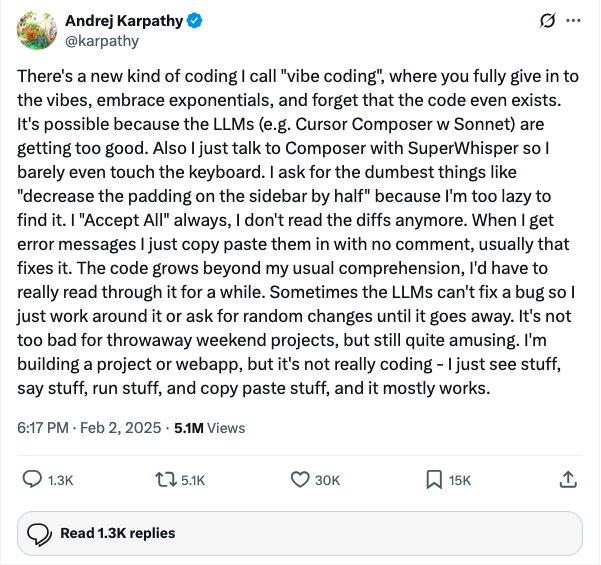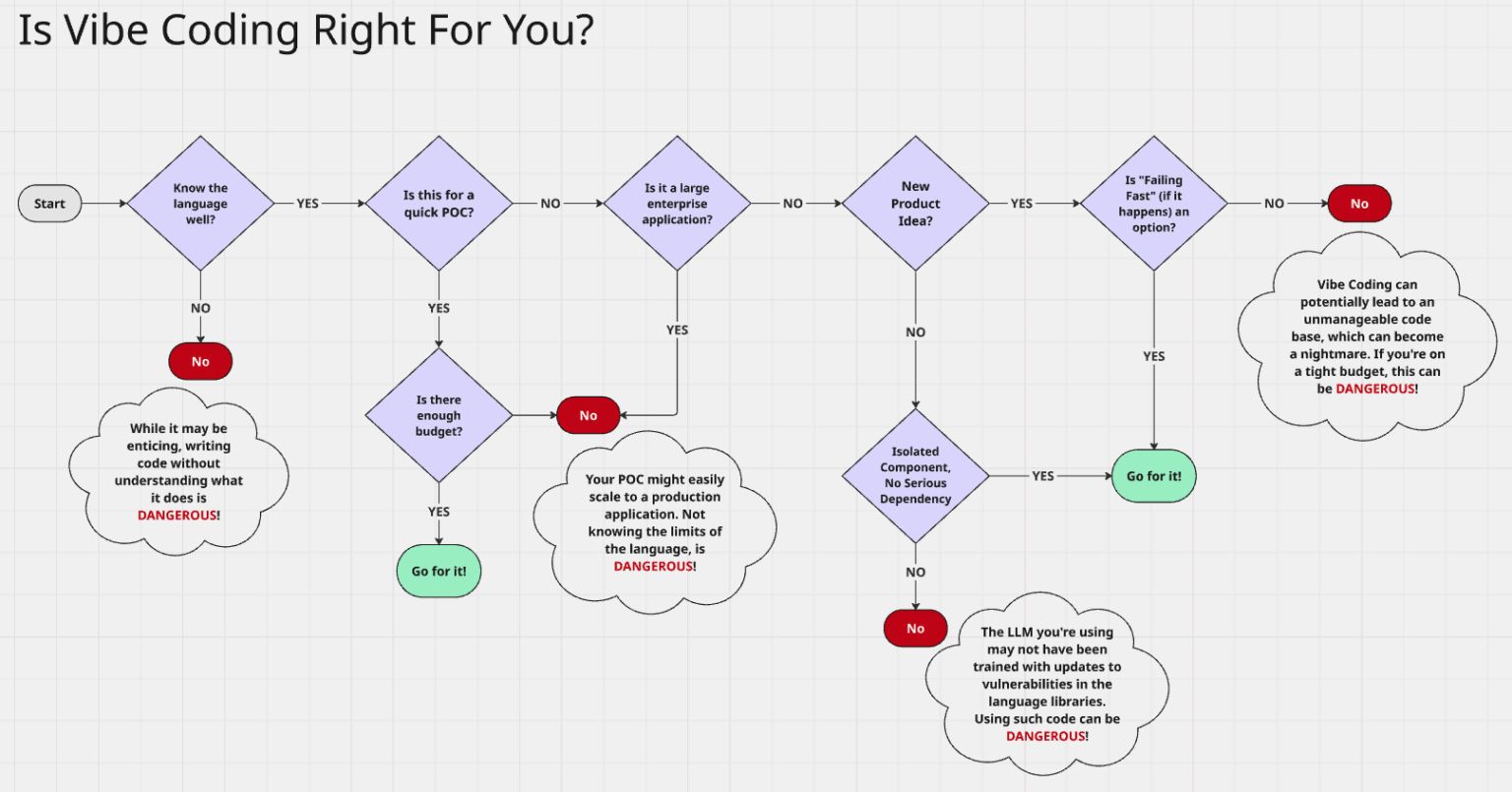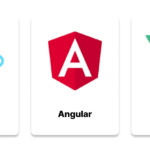
In this post, we will go over Vibe Coding and by the time we are done, we hope you will have a clear idea if Vibe Coding is right for your project.
So what is Vibe Coding?
Andrej Carpathy, one of the co-founders at OpenAI, came up with this phrase in one of his tweets, which has become one of the most viral tweets of all time. Here is what it said:

How much of this is sarcasm is up for debate, but there is crude humour that is undeniable. That been said, Vibe Coding has become a real thing and even prominent folks, like Addy Osmani (one of the folks at Google we like to follow) is talking about it.
Here are some of the “things” you do in Vibe Coding:
- Describe your project idea to a Large Language Model (LLM)
- With crafty prompt engineering, get some code output from the LLMs
- Put them together in your text editor (copy and paste)
- Hope it works
- If it does not, go back to the LLM and seek more help
- Continue this cycle until it works or you run out of patience (or your query quota)
But is Vibe Coding right for you?
Well, that’s the million dollar question and only time will tell if it’s a menacing fad or something useful. Everything depends on the advancement of LLMs and how we adopt it. But to err on the side of caution, we think you can give it a shot depending on where you’re in your career, and where you want to apply it.
Let’s break it down with this flow chart.

Pros and Cons of Vibe Coding
Pros:
- Vibe Coding will let you quickly do something without spending too much time learning (where we often lose interest)
- Can be a huge productivity boost if you already have a good grasp on the technology
- Supports the “Fail Fast Fail Often” growth strategy
- Great learning aid
Cons:
- The code output may not even work … and you may not even realize or accept that until it’s too late
- After spending weeks, you may end up with a pile of hallucinated code
- Code base with deep security vulnerabilities. Remember the Log4j scare?
- If you’re a new programmer, you will never learn anything and Vibe Coding will become a crutch (not good)
Some Other Things To Consider (Risks)
While it is remarkable what LLMs can do for us already, but there are some inherent risks to using them.
- If you get in the habit of using LLMs to generate code, you’re more likely to offload mental tasks to AI tools, rather than engaging in critical thinking and problem solving yourself. Read: Lawsuit against Detroit Police after flawed facial recognition using AI.
- Cognitive Offload (which can be good or bad depending on the context) could lead to decreased memory and critical thinking if you use AI coding assistants as your copilot. You will not be able to write basic code without them. Read: https://evidencebased.education/cognitive-offloading-what-is-it-and-why-is-it-important/
- Algorithmic Complacency – You adopt patterns prescribed by the LLM, instead of learning things and figuring out your own.
Conclusion
Our advice is to try Vibe Coding so you know what the hoopla is all about, but remember the caveats and perils of being overly reliant on AI tools before getting sucked deep into Vibe Coding.
Bonus: If you made it this far, we recommend watching this video.
Featured photo (the one with the cat) by Volodymyr Dobrovolskyy on Unsplash





